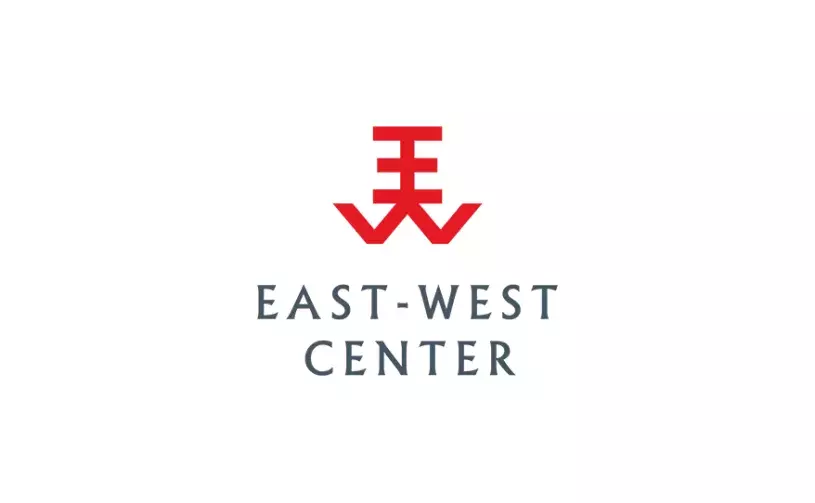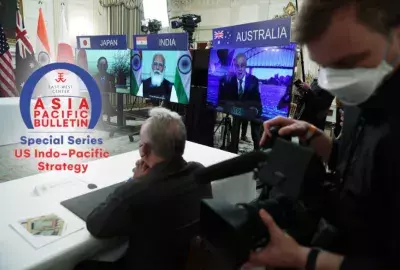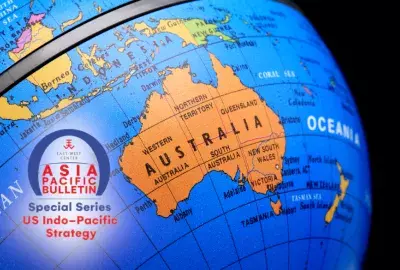Error message

|
Amitendu Palit, senior research fellow and research lead, National University of Singapore explains that “RCEP never enjoyed domestic support in India. It was viewed by most as an FTA with China." |
The Regional Comprehensive Economic Partnership (RCEP) negotiations concluded at the ASEAN Summit in Bangkok on November 4, 2019. Fifteen RCEP members, including the ten-ASEAN countries, and Australia, China, Japan, Korea and New Zealand, agreed to commence preparation of the legal text of the agreement for signing in 2020. India was the only member to opt out, citing significant unresolved outstanding issues.
India’s decision was surprising as it actively participated in the negotiations that lasted for 29 rounds and went on for more than six years since beginning in 2013. Domestic pressures forced Prime Minister Modi to withdraw India from RCEP at the last minute. It also points to disengagement becoming the prominent character of India’s trade policy as domestic protectionist interests successfully undermine outward-oriented economic visions.
Stubborn Domestic Politics
RCEP never enjoyed domestic support in India. It was viewed by most as an FTA with China, notwithstanding the presence of several other major regional economies in the group. The notion of ‘inviting’ more Chinese imports by granting them preferential access through a comprehensive FTA was unpalatable for India; already running large trade deficits with China.
In FY 2018, India ran a trade deficit of $53.6 billion out of total two-way trade of $87.1 billion. While there is great consternation among Indian industry, analysts, and government agencies over the unbalanced trade, there is also recognition of the country’s ‘dependence’ on Chinese imports. India’s inability to develop a broad industrial manufacturing base capable of producing both intermediate and final products for an expanding domestic economy has forced its reliance on imports. The reliance is particularly high on imports from China given its proficiency in manufacturing. The very realization of dependence on Chinese imports also creates opposition to Chinese imports. Coupled with geo-political discomfort toward China, the prospect of more Chinese imports flooding the economy limited RCEP’s acceptability from the beginning.
Fears over RCEP flooding the country with more Chinese imports is part of the general paranoia in India over imports. The potentially harmful effects of RCEP on domestic producers galvanized protectionist lobbies like Swadeshi Jagran Manch (SJM) to organize a nationwide agitation against the deal in October 2019. The SJM - an economic group championing local products and indigenous producers - is affiliated with the influential Rashtriya Swayamsevak Sangh (RSS). The Narendra Modi-led BJP’s political success in India for two successive general elections in 2014 and 2019 had much to do with the strong support provided by the RSS. Beginning with Prime Minister Modi, several current cabinet ministers and senior BJP leaders have deep links with the RSS – a voluntary organization espousing the cause of, and leading the campaign for, a Hindu nationalist socio-economic and political agenda. The agitation against RCEP by RSS-supported groups was one of the strongest signals that went out to the Modi government about the ‘costs’ of joining the deal in terms of antagonizing its core constituencies.
Most of Indian industry’s opposition to RCEP was due to fears of not being able to compete against (primarily) Chinese imports. The final charge against imports was led by the dairy industry. Spearheaded by the Gujarat Cooperative Milk Marketing Federation (GMMF) marketing the popular ‘Amul’ brand milk and dairy products, dairy producers mounted a vicious attack on RCEP. Lowering import tariffs on dairy was projected as an attempt to finish off small dairy farmers that contributed towards making India the largest milk producer in the world, accounting for nearly a tenth of global milk production. It is hardly surprising that the GMMF, located in PM Modi’s home state of Gujarat, was among the first to hail India’s decision to back out of RCEP. The fear among the dairy sector that FTAs like RCEP – and those with the United States and EU – are going to severely damage prospects of local producers, reflects the resentment towards foreign products and imports that are responsible for deep-rooted distrust of FTAs in India. The distrust would remain even if some FTAs offer better market access to Indian professionals. The perception of ‘damage’ from FTAs is for a wider set of constituencies enjoying greater political support, as opposed to skilled professionals, who are hardly backed by political lobbies.
Disengaging Trade Policy
RCEP negotiations were a formidable challenge for India’s trade policy. India would not have hung in till the end had it not comprehended the benefits from joining RCEP. Geo-strategic gains apart, being a part of RCEP would have fetched rich economic dividends. It would have facilitated India’s deeper presence in regional production networks and supply chains by drawing export-oriented FDI to India that would have exploited RCEP’s value addition rules and preferential tariffs for exports to other RCEP markets. Indian exporters badly needed preferential access to large regional markets after being deprived of U.S. GSP benefits and the WTO directing India to withdraw several prohibitive export subsidies. Long term market access interests of Indian exporters have been sacrificed by not joining RCEP.
Loss of positive long-term export interests by aiming to defend domestic industry from imports marks Indian trade policy’s failure to implement a strategy for obtaining deeper access in major global markets. In the absence of such a strategy, India can hardly aspire to command geo-strategic or geo-economic influence through becoming a greater presence in global markets.
Is there a possibility of India returning to RCEP? Theoretically, yes. India and other RCEP members are expected to work on resolving outstanding issues. These include India’s demands for revising the base year for slashing tariffs to 2019 from 2014 and installing an automatic safeguard mechanism for arresting sudden surge in imports. Accommodating these demands would mean introducing significant changes in the already agreed content of RCEP. It would also mean granting exceptional ‘special and differential’ flexibilities to India - a notion inconsistent with its large economic size and geo-strategic aspirations.
Withdrawal from RCEP is the clearest example of disengagement becoming the key character of India’s trade policy. This is further evident from India’s successive disengagement from various ongoing FTA negotiations — EU, Australia, Canada — during the past few years. It is also evident from India’s refusal to participate in global ecommerce talks taking place among nearly 80 WTO members. India has also refused to endorse the G20’s efforts to move toward common rules for digital economy through the Osaka Track. Sustained disengagement is now the mantra of India’s trade policy, viewed entirely through the defensive lens of protecting domestic political and economic interests.
|
Amitendu Palit, senior research fellow and research lead, National University of Singapore explains that “RCEP never enjoyed domestic support in India. It was viewed by most as an FTA with China." |
The Regional Comprehensive Economic Partnership (RCEP) negotiations concluded at the ASEAN Summit in Bangkok on November 4, 2019. Fifteen RCEP members, including the ten-ASEAN countries, and Australia, China, Japan, Korea and New Zealand, agreed to commence preparation of the legal text of the agreement for signing in 2020. India was the only member to opt out, citing significant unresolved outstanding issues.
India’s decision was surprising as it actively participated in the negotiations that lasted for 29 rounds and went on for more than six years since beginning in 2013. Domestic pressures forced Prime Minister Modi to withdraw India from RCEP at the last minute. It also points to disengagement becoming the prominent character of India’s trade policy as domestic protectionist interests successfully undermine outward-oriented economic visions.
Stubborn Domestic Politics
RCEP never enjoyed domestic support in India. It was viewed by most as an FTA with China, notwithstanding the presence of several other major regional economies in the group. The notion of ‘inviting’ more Chinese imports by granting them preferential access through a comprehensive FTA was unpalatable for India; already running large trade deficits with China.
In FY 2018, India ran a trade deficit of $53.6 billion out of total two-way trade of $87.1 billion. While there is great consternation among Indian industry, analysts, and government agencies over the unbalanced trade, there is also recognition of the country’s ‘dependence’ on Chinese imports. India’s inability to develop a broad industrial manufacturing base capable of producing both intermediate and final products for an expanding domestic economy has forced its reliance on imports. The reliance is particularly high on imports from China given its proficiency in manufacturing. The very realization of dependence on Chinese imports also creates opposition to Chinese imports. Coupled with geo-political discomfort toward China, the prospect of more Chinese imports flooding the economy limited RCEP’s acceptability from the beginning.
Fears over RCEP flooding the country with more Chinese imports is part of the general paranoia in India over imports. The potentially harmful effects of RCEP on domestic producers galvanized protectionist lobbies like Swadeshi Jagran Manch (SJM) to organize a nationwide agitation against the deal in October 2019. The SJM - an economic group championing local products and indigenous producers - is affiliated with the influential Rashtriya Swayamsevak Sangh (RSS). The Narendra Modi-led BJP’s political success in India for two successive general elections in 2014 and 2019 had much to do with the strong support provided by the RSS. Beginning with Prime Minister Modi, several current cabinet ministers and senior BJP leaders have deep links with the RSS – a voluntary organization espousing the cause of, and leading the campaign for, a Hindu nationalist socio-economic and political agenda. The agitation against RCEP by RSS-supported groups was one of the strongest signals that went out to the Modi government about the ‘costs’ of joining the deal in terms of antagonizing its core constituencies.
Most of Indian industry’s opposition to RCEP was due to fears of not being able to compete against (primarily) Chinese imports. The final charge against imports was led by the dairy industry. Spearheaded by the Gujarat Cooperative Milk Marketing Federation (GMMF) marketing the popular ‘Amul’ brand milk and dairy products, dairy producers mounted a vicious attack on RCEP. Lowering import tariffs on dairy was projected as an attempt to finish off small dairy farmers that contributed towards making India the largest milk producer in the world, accounting for nearly a tenth of global milk production. It is hardly surprising that the GMMF, located in PM Modi’s home state of Gujarat, was among the first to hail India’s decision to back out of RCEP. The fear among the dairy sector that FTAs like RCEP – and those with the United States and EU – are going to severely damage prospects of local producers, reflects the resentment towards foreign products and imports that are responsible for deep-rooted distrust of FTAs in India. The distrust would remain even if some FTAs offer better market access to Indian professionals. The perception of ‘damage’ from FTAs is for a wider set of constituencies enjoying greater political support, as opposed to skilled professionals, who are hardly backed by political lobbies.
Disengaging Trade Policy
RCEP negotiations were a formidable challenge for India’s trade policy. India would not have hung in till the end had it not comprehended the benefits from joining RCEP. Geo-strategic gains apart, being a part of RCEP would have fetched rich economic dividends. It would have facilitated India’s deeper presence in regional production networks and supply chains by drawing export-oriented FDI to India that would have exploited RCEP’s value addition rules and preferential tariffs for exports to other RCEP markets. Indian exporters badly needed preferential access to large regional markets after being deprived of U.S. GSP benefits and the WTO directing India to withdraw several prohibitive export subsidies. Long term market access interests of Indian exporters have been sacrificed by not joining RCEP.
Loss of positive long-term export interests by aiming to defend domestic industry from imports marks Indian trade policy’s failure to implement a strategy for obtaining deeper access in major global markets. In the absence of such a strategy, India can hardly aspire to command geo-strategic or geo-economic influence through becoming a greater presence in global markets.
Is there a possibility of India returning to RCEP? Theoretically, yes. India and other RCEP members are expected to work on resolving outstanding issues. These include India’s demands for revising the base year for slashing tariffs to 2019 from 2014 and installing an automatic safeguard mechanism for arresting sudden surge in imports. Accommodating these demands would mean introducing significant changes in the already agreed content of RCEP. It would also mean granting exceptional ‘special and differential’ flexibilities to India - a notion inconsistent with its large economic size and geo-strategic aspirations.
Withdrawal from RCEP is the clearest example of disengagement becoming the key character of India’s trade policy. This is further evident from India’s successive disengagement from various ongoing FTA negotiations — EU, Australia, Canada — during the past few years. It is also evident from India’s refusal to participate in global ecommerce talks taking place among nearly 80 WTO members. India has also refused to endorse the G20’s efforts to move toward common rules for digital economy through the Osaka Track. Sustained disengagement is now the mantra of India’s trade policy, viewed entirely through the defensive lens of protecting domestic political and economic interests.







